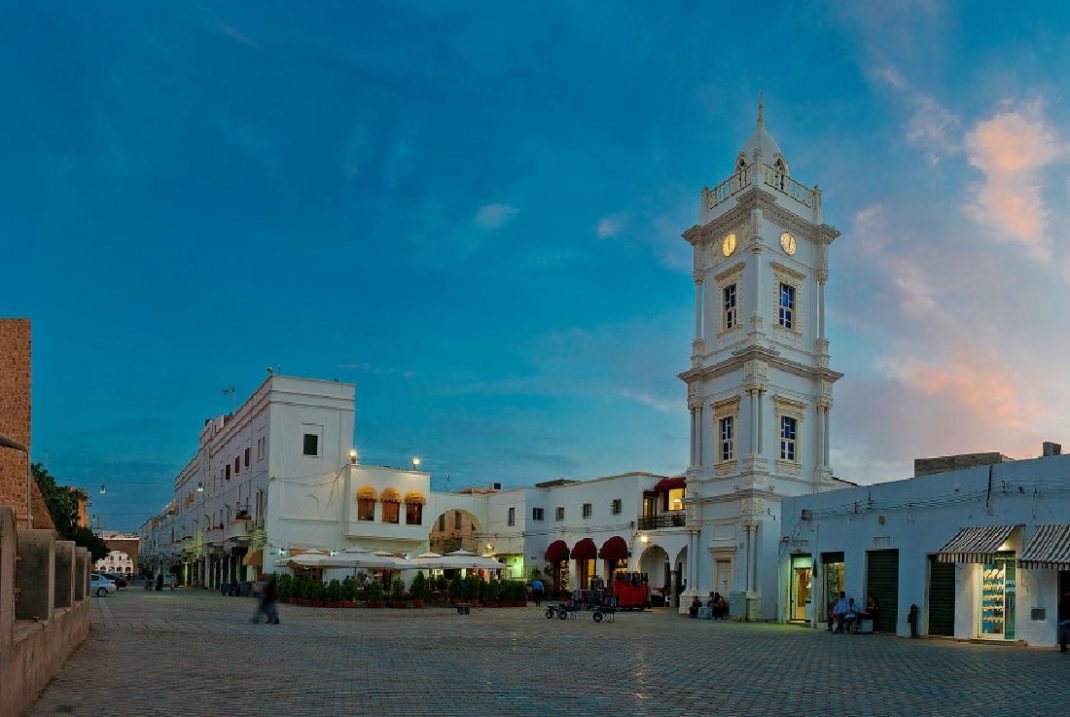By Senussi Bsaikri
The war had stopped in the capital city, Tripoli, but it wasn’t announced how it was finished and on what basis the fighters had put the swords in their sheaths.
The only news one could find, is from one of the notables of the city of Tarhuna who said that things are going according to the agreement between Tripoli and Tarhuna notables without specifying the nature of the agreement.
Moreover, before ending the war, Tarhuna Notables Council kept stressing that they would carry on supporting the war until they achieve their targets, which weren’t met.
There are some explanations to the retreat of the attackers: firstly, they had militarily failed although they had sparked the war, but the results became negative and intimidated the civilians, many of them were displaced.
The other thing was that they were defeated and failed to advance after they made sure that the defenders were strong in resisting them.
In addition to that, it is not possible to ignore the external pressure and the role of the international sides that concerned with the Libyan issue. It is known that the international role is the most effective especially if Washington appears in the scene.
The issue is that it wasn’t announced clearly according to what vision the fighting was stopped and the attackers withdrew. What were the guarantees not to repeat the tragedy and to intimidate the civilians?
How to guarantee that the attacks wouldn’t be repeated either by the same attackers or even by other ones in a dispute over the influence in Tripoli?
To reassure the people of the capital city, it requires clarification from the Presidential Council (PC). This clarification should include the security arrangements to prevent any more attempts.
The arrangements are more significant than the just standard security because it depends on bigger arrangements that appear to be not the reason behind the clashes.
The international mission was, unusually, there in the crisis scene, its approach was, and its language was firm.
I think that Washington was there through its representative in the UNSMIL, Stephanie Williams, her attendance reflects the improvement in ending the war.
Most of Williams meetings with the different Libyan active factions after she started her position in the UNSMIL were concentrating on going through two routes, the security arrangements and the economic reforms, to introduce the transition into the political way. That was her role in dealing with the clashes.
The economic reforms had been adopted although the PC wasn’t entirely satisfied. The security arrangements committee was formed, it was supposed to implement its role according to the Political Agreement since more than two years ago.
This means that the UNSMIL had taken advantage of the clashes and used the crisis to look after the arrangements and reforms then the political operation.
The significant question now is: Is the situation in Tripoli now ready for moving forward to work on improving the political situation and end the dispute and division?
Answering the question requires ensuring that the economic and security routes are right. It is also needed to make sure that the UNSMIL and the PC and its weak government can go forward through these two routes.
It is because the obstacles are still on the way to obstruct the arrangements and the reforms.
It is true that it is positive for the two factions in the east and west, the State Council and more than 120 members of the House of Representatives (HoR), to announce their readiness to negotiate about forming a new presidential council that consists of three members only. But the internal opponent who was represented in Haftar and his supporters is obstructing this direction.
Also, the international dispute makes another challenge, Paris insists on adopting its initiative, which depends on giving priority to the elections before the end of this year.
Overriding Haftar and the opponent and freezing Paris’s initiative to push for the accord between the HoR and the State Council and form the new presidential council for another transition time before the elections could happen in case of doubling the international pressures supported by America.
This scenario is possible but not sure until now.
***
Senussi Bsaikri – A Libyan Write
Translated by LP from the original article in Arabic
____________




